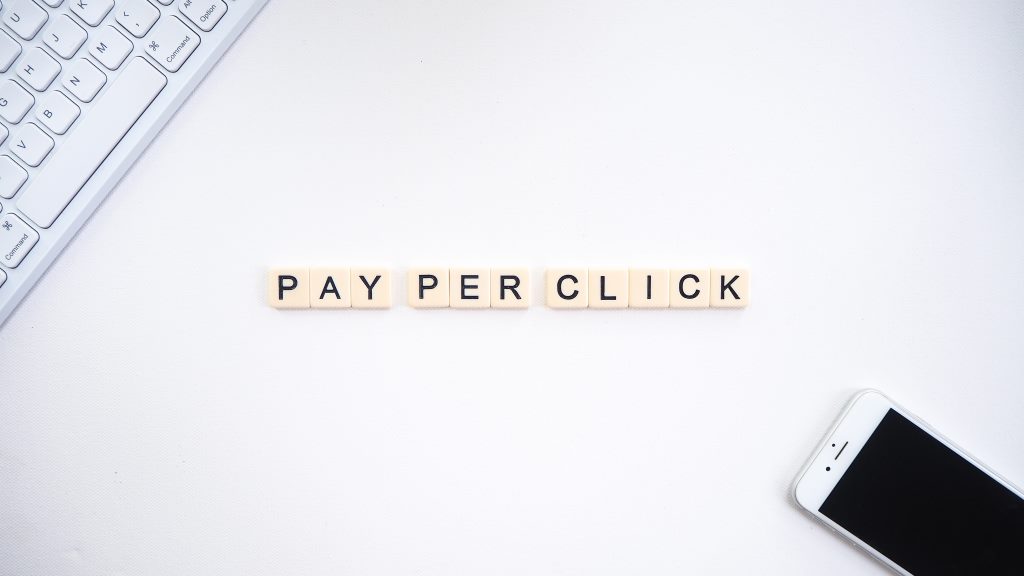
PPC And Its Strategies
What's PPC? How does this function? And, most importantly, how can you get it to work for you?
Pay-per-click (PPC) is an advertising model that allows marketers to place ads on an ad platform and pay that platform's host whenever their ad is clicked .The purpose of a PPC ad is to lead the viewing person to click through to the advertiser's website or app where that visitor can complete a valuable action, such as purchasing a product. Search engines are extremely common advertising platforms. They allow you to show advertisements that are applicable to what consumers are looking for. Advertising services such as Google Ads and Bing Ads work with real-time bidding (RTB) where advertising inventory is sold using real-time information in a personal automated auction.
Programs such as Google AdWords, Bing Ads, AdRoll, SteelHouse, Facebook Ads, and others give merchants methods to quickly promote their websites and obtain a wealth of information that can be used to create campaigns more cost-effective in generating sales.
These platforms give a broad variety of conversion opportunities, such as:
Shopping Ads – Showing your goods in search results on search engines such as Google and Bing.
Text Ads – Run text-based advertisements in search engine results, email browsers, and other placements.
Display Ads – Serving banner ads on other appropriate locations, such as blogs and news sites.
Re-Marketing Ads – Displaying ads for individuals who have visited your website or taken similar beneficial action.
Video Ads – You can display your own video advertisements on sites like YouTube, have advertisements next to videos, and take similar activities to connect shoppers to your website.
Social Media Ads –Social media platforms like Facebook and instagram have a large number of consumers who could be your future clients. PPC advertising on these platforms can assist you attain greater click-through rates and boost knowledge of your product or service. The channels can be used to target particular interests and demographics.
IMPORTANCE OF PPC FOR YOUR BRAND
Why isn't everyone focusing on PPC? Simply mentioned, you always pay for clicks. The day you stop paying to run advertisements, you stop receiving new traffic. While PPC can assist you to earn long-term client by expanding your client list.
You can launch a campaign comparatively rapidly, assess the achievement of different keywords and goals, and create winning campaigns quicker than you can with SEO. Keep in mind that some shoppers are more likely to communicate with ads, while others are more likely to look at organic search results. One traffic source does not necessarily replace the other.
SEO and PPC work together well. Organic rankings in search engines and ads running in unique places like Instagram have a unique value and don't negate each other. It's all about driving targeted shoppers to your shop at the end of the day. Scale businesses with marketing budgets for both typically focus on both among other campaigns.
How do I do the PPC campaign?
You know how to do the PPC Campaign? Let's look at some significant measures to establish a plan for the PPC campaign
Goal Setting:
Setting your campaign's goal is important. Ad goal will assist you to efficiently drive your campaign. Identify your ad goal and maintain it in mind when planning your campaign strategy. Your ad goal or marketing objective can be brand awareness, lead generation, boost website traffic and boost website sales. You need to plan your ad strategy for each goal, which helps you achieve your objectives
Choosing Platform:
PPC advertisements like Google, Yahoo, Bing and social media channels like Facebook, there are multiple platforms accessible. Choose your platform wisely and plan your ad campaign approach accordingly. Google is the most efficient and popular PPC campaign platform. Google Adwords is Google's advertising interface that is used to schedule and publish Google ads. Similarly, Bing Ads advertisements provide all the interfaces needed for an efficient PPC campaign.
Sales
Plan targeting:
After setting your campaign objective and selecting the correct platform for your ad, the next step is to schedule your ad targeting for your most appropriate audience. There are two kinds of targeting. You can target audiences for a particular geographic place and you can also optimize your campaign for a particular type of device, operating systems and wireless networks.
Geo-targeting:
Geographic targeting allows your advertisements to appear in the locations you choose: country, city, society or a radius around a place, or location groups. Geo targeting helps you focus your ad campaign on where you will find the right customers and restrict it where you don't, which could assist boost your ROI. Right geographic region can make a significant contribution to optimizing your campaign for better outcomes. Identify nations, states, regions, or areas where your ad campaign can do well. Right geographic region can make a significant contribution to optimizing your campaign for better outcomes. Identify nations, states, regions, or areas where your ad campaign can do well.
Google no longer displays as many local search results by default.
Google is testing a new design for a "local pack," the resulting local search box. New design shows the local results in a scrollable carousel format and now includes an ad spot at the top. There is no doubt that the carousel is a prime real estate for brands seeking to promote their listing to people looking for their offers. So how can the brands take advantage of the carousel
Google Local Listing-
It is reasonable to say that local listings should be an significant concern for any local business. It helps get your company on the map (literally) and is also the first step to be regarded for carousel positioning. If you haven't already, set up a local Google listing for your company.
Reviews-
A latest research released by Digital Marketing Works discovered a strong correlation between Google reviews and carousel positioning. Both the amount of reviews and the rating appeared to have an effect on whether or not a brand received a placement. So the quality and amount of reviews can be a determining variable for products that want to ride the carousel.
Device targeting:
Device targeting is important nowadays as most users use mobile devices to browse the web. Use the targeting device to reach your best customers on any device. You can customize your ads for different mobile devices and operating systems with device targeting. This way you can target people on mobile devices online or using different operating systems.
Keyword Research:
Keyword research is a time-consuming and ongoing activity. Create your list of keywords at the moment of campaign planning and you should constantly refine and expand your keyword list for long-tail, low price and extremely appropriate keywords. Another significant step in keyword research is to evaluate elevated costs under keyword performance. There are different types of keywords example-
Short-tail keyword
Long-tail keyword
Short-term fresh keyword
Long-term evergreen keyword
Product defining keyword
Customer defining keyword
Geo-targeting keyword
LSI (Latent Semantic Indexing) Keywords
Intent targeting keywords
Write an effective Ad Text:
Ad text plays an significant part in your ads ' success. It is the type of marketing communication that advertisers can use on search platforms to promote their product or service. An efficient ad text is at least one of your keywords, appealing discounts and promotion, and a call for action. Your ad's quality score relies on various variables and one of them is your ad text. Your ad text should be unique and attractive. Include discount quantity in your ad copy and also add a powerful call to action that can force searchers to click on your advertisements. Use action phrases like buy now, order now, resist today, or sign up here. Include one of your keywords in your ad text and match your ad to your landing page.
Add Ad Extensions:
Ad expansion offers additional advantages for your PPC advertising. Use these extensions to enhance your ad and display additional information with your ad, such as an address, phone number, store rating, or additional links to your website. Ad expansion guarantees high CTR because it makes your ad more relevant and prominent. It also improves your quality score.
Type of extensions-
Sitelink Extensions- Sitelinks is the king of all AdWords ad extensions. They are by far the most versatile extensions they are helpful for all vertical accounts, they appear on all devices.
Call out Extensions- Callout extensions are small text snippets that appear with your search advertisements and highlight extra characteristics or advantages of your products / services
Message Extensions- Message extensions allow prospective clients to send text messages directly from your ad. With one tap on your ad, individuals on mobile devices can email you to book an appointment, get a quote, ask for data, ask for a service, and more. Message extensions can assist you develop your company by providing people another easy way to reach you
Promotion Extensions- Promotion extensions can add value to your Search Network text advertisements by highlighting your sales and promotions for individuals looking for the best deals your company has to offer. The extension also shows up to 2 lines of text with details of your promotion.
Price Extensions- Price extensions can add importance to your Search Network text advertisements by providing you a larger display of your services and product variety and by connecting individuals directly to what interests them on your site.
Snippet Extensions- Structured snippets allow your advertisements to highlight particular aspects of your products and services.
Ad scheduling
Ad scheduling is essential to optimize your ad approach. You can demonstrate your ad whenever a client searches online, or you can display your ad on certain days, or when you are there to manage client requests during business hours. Your advertisements offer distinct efficiency results on separate days of the week and distinct hours of the day. Hence, look at which internet days and hours are most appropriate for your company and then plan your ad during these moments to boost your exposure. You can also adjust your bid for less-performing hours and days.
Optimize Your Landing Pages:
Google believes the quality of your landing page to be one of the key factors in determining the ad quality score. Your landing page is where the user redirects when they click on your ad. Landing websites with poor content or website pages under building will give your users bad experience. Users will not buy from you if you land them on an unrelated page. A well-optimized landing page should have full product data and action buttons such as "Subscribe here" or "Buy Now." If you create various advertisements for your product, you should optimize your landing pages for each ad copy.
Filter out Negative Keywords:
In pay per click advertising, adverse keywords stop your advertisements from showing for specific keywords. Identify keywords that you don't want your advertisements to appear and add them to your negative keyword list. A well-researched Negative Keyword list will reduce the price of your ad by filtering non-converting traffic and irrelevant clicks. It also increases your ROI by lowering the average CPC.
Monitor Competitors:
Benchmarking is the main variable for any marketing campaign. You should keep an eye on your rivals at all times. How their advertisements appear, what keywords they use, and how they schedule your approach accordingly. Never create advertisements that look like the advertisements of your competitor. You should design your ad, which should look better than the ad of your competitor.
Install Conversion Tracking Code:
The monitoring code will assist you to understand which keywords are profitable and lead to clicks and conversion. This will assist you optimize your bid and enhance your ROI.
Use Google Analytics:
You should always monitor and monitor the efficiency of your PPC campaign. You should understand in a better way what things are working for you. If you use the Google Adwords tool to publish your advertisements on the Google search platform, use Google Analytics to gain greater insights into the behavior of the searcher. You should evaluate your website's bounce rate. Bounce rate will inform you how many searchers have visited your site but have not performed any action. You should also monitor your campaign's CTR and conversion frequency. This will assist you optimize your PPC campaign and landing page.
Effective PPC campaign is the method of ongoing studies and refinement. Never follow the "Set it and forget it" approach to PPC campaigns. You must do studies to know the conduct of the searcher. You also need to research your profitable keywords and best suited days and hours for your campaign. Now that you understand what the PPC campaign is, plan your daily budget and spend wisely.



